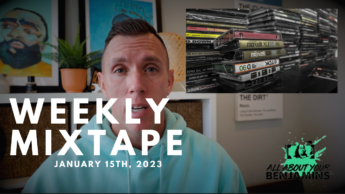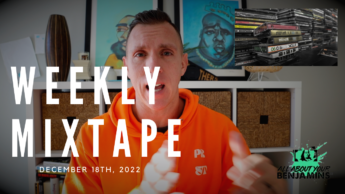Week In Review Articles
The WSJ: Consumer Spending Is Primed to Fuel Summer Growth
The WSJ: Americans Are Leaving Unemployment Rolls More Quickly in States Cutting Off Benefits
The WSJ: During Covid-19, Most Americans Got Richer—Especially the Rich
The WSJ: U.S. Existing-Home Prices Hit Record High in May
Strangely, life gets harder when you try to make it easy.
Exercising might be hard, but never moving makes life harder.
Uncomfortable conversations are hard, but avoiding every conflict is harder.
Mastering your craft is hard, but having no skills is harder.
Easy has a cost.
— James Clear (@JamesClear) June 22, 2021
Weekly Mixtape
Morgan Housel: Little Stories “I often wonder how many tens of billions of dollars have been paid to management consultants to solve problems that low-wage line workers had solutions for.”
Morgan Housel: Harder Than It Looks, Not As Fun As It Seems “Everyone’s dealing with problems they don’t advertise, at least until you get to know them well. Keep that in mind and you become more forgiving – to yourself and others.”
The Irrelevant Investor: Blink “I’m successful because I don’t yearn for more. I have my wife and my boys and my freedom. I’m good. I have a unique appreciation of what I have because I already lost everything when my mother died. Now I have everything I need and everything I want.”
Khe Hy: What Skinny Margaritas Taught Me About Habit Formation “A craving implies that there’s something missing in your life. One of those desires is going unmet.”
Dr. Joy Lere: A Shrink, Serendipity, And A Start-Up “So often in life and in our careers, we focus on the destination—the “what’s next.” I think this is a mistake. Life is The Journey.”
Bob Seawright: The Better Letter: The Tuned Deck “We are inherently biased toward complexity. We see complexity when simple has much greater explanatory power and we see complex order where chaos reigns. We associate complexity with expertise, innovation, and authority. Complex problems create environments where we are more susceptible to creative interpretation, social pressure, and incentives. Simpler is better.”
The Irrelevant Investor: In Defense Of Lifestyle Creep “There’s nothing wrong with spending more money as long as you’re doing it responsibly. My goal at this point in my life is not to avoid lifestyle creep; It’s to spend aggressively on things that make me happy and cut back on things that don’t.”
A Wealth Of Common Sense: The Most Important Thing That’s Happened in Our Lifetime? “Many young people are going to crave remote and work-from-home opportunities. But if you’re still trying to move up in an organization it’s hard to overstate how important it can be to put in some face time at the office”
Cathy Curtis: Why Do We Procrastinate About Finances? “To change this view of money and motivate yourself to start working on your finances, it’s smart to purposefully alter your perception. When you view money as an entity that shouldn’t be discussed, you give it power. Instead, try viewing money as a tool to help you live the life you want—whether that’s traveling more, giving more to your favorite charity, or retiring comfortably around family. As soon as you take the power away from money, you realize it’s not unpleasant to try and create a financial plan. It’s actually kind of exciting!”
Humble Dollar: Skimping On Cash “Indeed, thanks to the double whammy of inflation and taxes, our cash reserve will slowly depreciate, and that’s especially true given today’s rock-bottom interest rates.”
A Wealth Of Common Sense: Idiots, Maniacs & The Complexities Of Risk “Stocks are risky in the short-term but it’s even riskier if you don’t hold them in the long-term. Cash is risky in the long-term but it’s even riskier if you don’t have liquidity in the short-term when you need to spend your money.”
Pragmatic Capitalism: Does A 100 Vol Asset Belong In Retirement Accounts? “As you enter or near retirement most people will need this portfolio to provide a certain level of stability to offset the unpredictability that comes with reduced income streams from working. This account is compromised of your literal savings and should be allocated in a prudent manner that optimizes the likelihood of meeting your future financial goals. Importantly, as I often note, what we typically call an “investment” portfolio is really our savings portfolio. It is literally the money you save and you need it to be prudently allocated so that it creates a certain degree of predictability as you navigate the uncertainty of future liability needs.”
Thomas Kopelman: The Long Game Podcast – Derick Grant
Disclaimer: Nothing on this blog should be considered advice, or recommendations. If you have questions pertaining to your individual situation you should consult your financial advisor. For all of the disclaimers, please see my disclaimers page.






